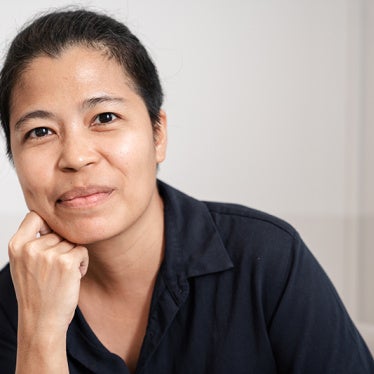(New York) - The 14 armed groups and two governments that refused repeated UN demands to stop using child soldiers should be subject to sanctions, Human Rights Watch said today. Since 2002, these “persistent violators” have been identified in four reports from UN Secretary-General Kofi Annan for violating international standards prohibiting the recruitment and use of child soldiers. The Security Council is to debate the 2006 report tomorrow.
The violators include the Tamil Tigers of Sri Lanka, Uganda’s Lord’s Resistance Army, the Maoists in Nepal, the government of Myanmar, guerrilla groups and paramilitaries in Colombia, the Sudan People’s Liberation Army and other parties from the Democratic Republic of Congo, Burundi and the Philippines.
“These groups have repeatedly and shamelessly defied the Security Council by using children as soldiers,” said Jo Becker, children’s rights advocate at Human Rights Watch. “The Security Council should use its power to punish the groups that ruin the lives of vulnerable children and apply sanctions against them."
A report released this month by Annan identified 38 parties from 12 countries that have recruited or used children as soldiers in violation of international standards during the past year. It named 16 parties from nine countries as having violated the standards for the fourth consecutive time.
The council has repeatedly called on parties to armed conflict to end all recruitment and use of child soldiers, and has demanded that they engage in dialogue with the UN and develop concrete action plans to end their use of child soldiers. Several parties in Côte d’Ivoire have developed action plans, and dialogue is on-going in several other countries. However, none of the 16 “persistent violators” has developed a credible action plan to end child recruitment, and only those parties in the Democratic Republic of Congo have participated in any notable demobilization of children from their ranks in the past year.
In 2004 and 2005, the Security Council threatened to apply sanctions, including arms embargoes, against parties that fail to show progress in ending the use of child soldiers. To date, it has taken such action in two instances: in February 2006, it imposed a travel ban and asset freeze on Martin Kouakou Fofie, a commander of the Forces Nouvelles (New Forces) in Côte d’Ivoire, citing child recruitment as well as other violations including abductions, use of forced labor, sexual violence, and extrajudicial executions. In July 2006, it expanded existing sanctions (including travel bans and asset freezes) to apply to individual child recruiters in the Democratic Republic of Congo.
“The Security Council can’t let groups use and abuse child soldiers year after year without paying a penalty,” said Becker. “But these groups will keep using children until they’re made to pay a heavy price for it.”
The following parties were listed in the secretary-general’s 2002, 2003, 2005 and 2006 reports for recruiting or using child soldiers in violation of international standards:
- Burma: Tatmadaw Kyi (national armed forces), Karenni Army;
- Burundi: Palipehutu-FNL;
- Democratic Republic of Congo: Forces Armées de la Républic Démocratique du Congo (FARDC), Forces Démocratiques de Libération du Rwanda (FDLR), Front Nationaliste et Integrationaliste (FNI), and Mai Mai groups;
- Sudan: Sudan People’s Liberation Army (SPLA);
- Colombia: Ejercito de Liberación Nacional (ELN), Fuerzas Armadas Frevolucionarias de Colombia-Ejercito del Pueblo (FARC-EP), Autodefensas Campesinoas del Casanare, and Frente Cacique Pipinta;
- Nepal: Communist Party of Nepal-Maoist (CPN-M);
- Philippines: Moro Islamic Liberation Front (MILF), New People’s Army (NPA);
- Sri Lanka: Liberation Tigers of Tamil Eelam (LTTE);
- Uganda: Lord’s Resistance Army.
There was no report issued in 2004.
For more information on child soldiers, please see: “Report of the Secretary-General on Children and Armed Conflict,” October 2006: http://www.un.org/Docs/sc/sgrep06.htm.







